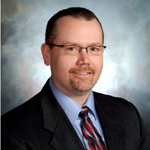Making the Integrity List: Restoring Investor Trust in the Financial Markets
CFA Institute continually promotes strong personal responsibilities; the CFA Institute Integrity List offers 50 ways to restore investor trust and stresses the importance of members placing their clients’ interests before their own. When renowned British economist and chair of the Kay Review of U.K. Equity Markets and Long-Term Decision Making John Kay writes an editorial article on the topic, you know you are in good company.
In his article “A ballboy, a union and a banker’s duty,” Kay provides insights on the state of fiduciary duties within the investment advisory industry. He addresses the actions of investment professionals today and is convinced that attempts to “mechanically apply principles devised to ensure that Victorian solicitors were properly mindful of the interests of widows and orphans” has not met “the objective of promoting high standards of behavior” required within our industry.
Kay goes on to cite recent scandals of Libor fixing and the mis-selling of payment protection insurance as examples of actions that do not meet the expectations of putting ones clients’ interests first. The continued appearance of negative news each year has led to the low levels of industry trust reported in the 2013 Edelman Trust Barometer and the recent CFA Institute Global Market Sentiment Survey.
Kay believes that “the reputation of finance has been degraded by the actions of a few.” And further, “if trust and confidence in financial intermediation are to be re-established, principles of loyalty and prudence are a prerequisite.” These attributes align with the responsibilities that CFA Institute requires of all CFA charterholders and candidates participating in the CFA Program.
One aspect of the Code of Ethics and Standards of Professional Conduct is for individuals to “place the integrity of the investment profession and the interests of clients above their own personal interests.” By having more than 100,000 members and more than 200,000 candidates working under this expectation, CFA Institute is helping deliver the message that there are investment professionals properly working in the interest of investors.
CFA Institute members must also adhere to the Standard of Loyalty, Prudence, and Care, which places additional emphasis on the principles Kay called prerequisites to regaining the trust of clients. The guidance in the CFA Institute Standards of Practice Handbook “clarifies that client interests are paramount.” As investment professionals embrace these core principles with the recommendations they make, investor opinions will begin to change.
However, the reputations being questioned go beyond the individual advisers committing wrongdoing. Recent scandals also have broad damaging effects on the firms where the individuals worked, beyond the fines levied. To assist in re-establishing the image of the industry, firms must work to create a new culture where ethical actions are expected and not the exception.
Firms build this culture of integrity through compliance with standards promoting high ethical and professional conduct by all firm employees. The CFA Institute Asset Manager Code of Professional Conduct contains the same client protection principles expected of investment professionals by Kay and of all CFA charterholders. When a firm enforces the commonly held ethical principles to clients of loyalty, prudence, and care, the firms signal to their clients, employees, and peers the importance of placing clients’ interests first.
Restoring investor trust will not occur quickly. It will take small and consistent actions by many to erase the reputational damage caused by a few. Through working together to weed out unethical and corrupt actions, the industry can regain some of its lost reputation.

